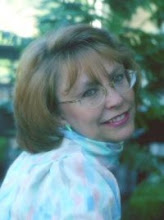I have been following this series since it began. I have reviewed them all as well. The first in series "If Walls Could Talk" (click here) and second "Dead Bolt" (click here). I have interviewed this author twice now. The most recent interview (click here) and an older interview (click here). So I looked forward to this addition to the series that sprinkles San Francisco history, architecture, and a sprinkling of ghosts in with murder.
Copyright: December 2012 (Signet) 336 pgs
Series: 3rd in Haunted Home Renovations Mysteries
Sensuality: a few heated kisses
Mystery Sub-genre: Paranormal Cozy
Main Characters: Mel Turner, woman construction renovation Owner/Operator
Setting: Modern day, San Francisco
Obtained Through: Publisher for honest review
Mel is bidding on the renovation contract for a large old Victorian home, but the potential buyers are hoping to cache in on the supposed haunted status of the house by turning it into a haunted Bed and Breakfast. Mel is in competition with another construction company and the two, Josh and Mel, must stay overnight in the house to win the contract. Mel is the favorite since the owner's are hoping she can talk to the ghosts about cooperating with the B&B idea and not terrorize the home.
But the little old lady who currently owns the home for the past few decades doesn't last the night and is found at the bottom of the garden well. Mel believes the resident child ghost, Anabelle, probably witnessed what happened to sweet old Mrs. Bernini. Her body is barely found when several people claim they were to inherit the house. While ownership is being contested, Mel is trying to get back in and spend some time with the ghostly family of the original family to find out what they may know of the death.
Melanie is smart and capable in construction, just a little jaded from her divorce, and struggling to embrace the ghost whisper in herself. Her dad is always a great addition to the stories. The "complicated" relationship with her high school flame and current love interest, Graham is touchy. Occasionally he starts to harp about her asking around about the death. His character tries not to nag, but he comes close in this one. I do really appreciate that he is not the standard cop boyfriend and is even in the construction industry too. Surprisingly, the ex-husband has a decent moment revealed as well, which made me wonder if this will be a new wrinkle for Mel in coming books. Anabelle is a great character that you aren't sure about her motivations until the end, which adds to the spookiness of this story.
The setting is the famous Castro district and the house in this one just grabbed me. I really enjoyed the descriptions and ambiance that was generated. This book has a bit more of the spooky vibe than the past books, not horror scary but some good atmospheric chills that I personally liked. They weren't overdone but added to the story of the house's tragic past when you understand what happened there.
The mystery plot had some good points. Was Mrs. Bernini killed to get the house and antiques or was it something else? Was the original family that all died one night in the house murdered by a rival neighbor? Were the ghosts somehow involved with Mrs. Bernini's death? The challenge between Mel and the Avery construction to stay overnight seemed a tad contrived - but you hear about people accepting challenges to stay in haunted house in real life so...
The resolution of whodunit was okay, not as exciting as the last book, but there was some suspense in finding out what happened to the original family. I liked the status of the house at the end and how the ownership was worked out.
Rating: Good - A fun, quick read with a delightful splash of spookiness.
You can read an excerpt of the beginning of the book (click here.)


































